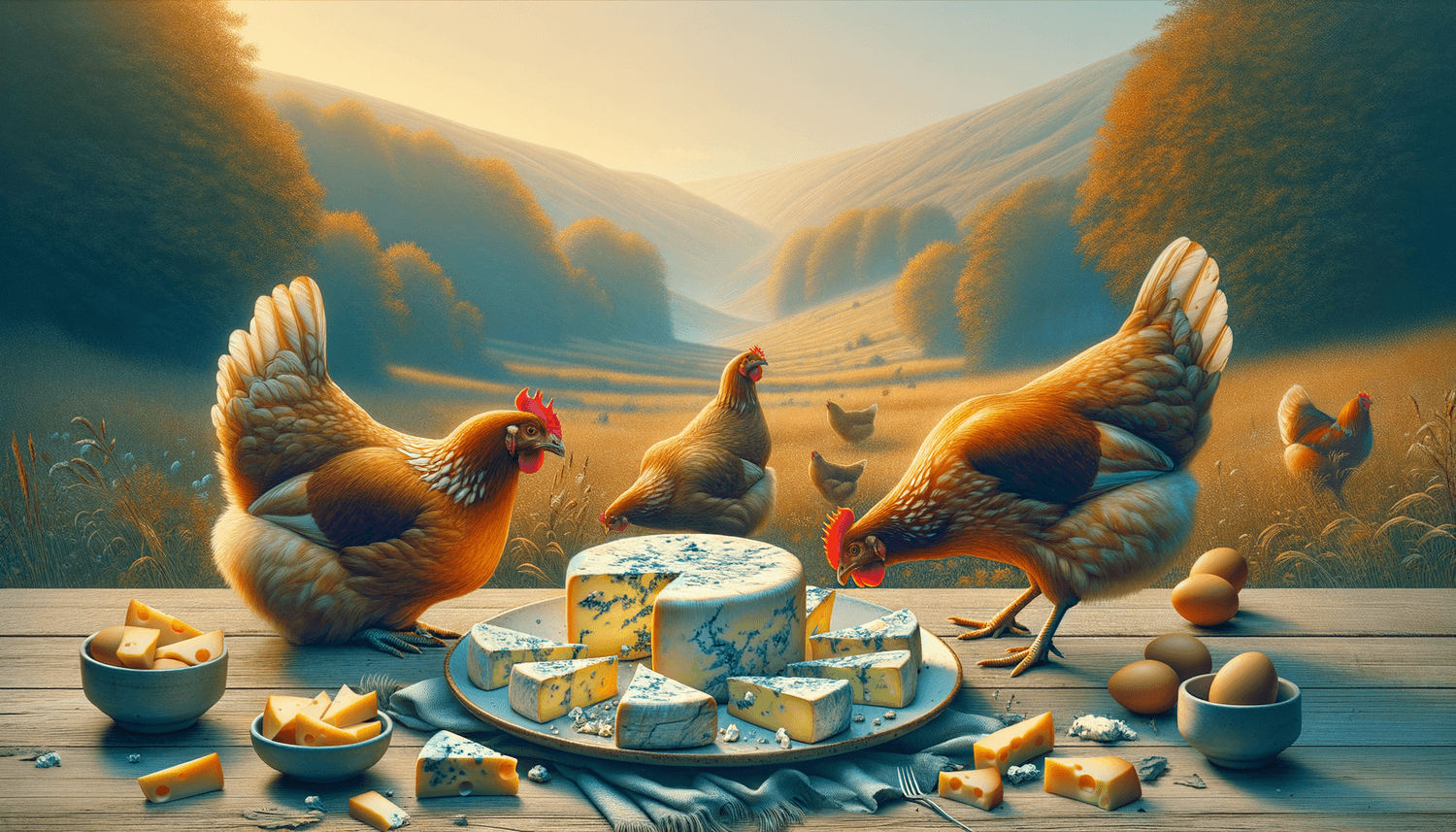No, chickens should not eat blue cheese. While chickens can technically consume small amounts of some types of cheese, blue cheese contains cultures of the mold Penicillium which can be harmful to chickens. Additionally, blue cheese is high in fat and salt, which are not ideal for a chicken’s diet and can lead to health issues if consumed in excess.
Quick Summary
- Chickens should not eat blue cheese.
- The mold in blue cheese can be harmful, and the high fat and salt content are not ideal for chickens.
- There are risks of mold toxicity and health issues due to high fat and salt.
- Chickens should avoid all blue cheese; there are no recommended guidelines for safe consumption.
Overview of Blue Cheese
Blue cheese is a type of cheese with a distinctive blue or blue-green molding. These molds are created by culturing the cheese with strains of Penicillium, which give the cheese its unique flavor and appearance. Blue cheese is typically rich in calcium and protein but also has high levels of sodium and fat.
Benefits and Risks of Blue Cheese for Chickens
The potential benefits of other cheeses, usually in minimal amounts, may include protein and calcium. However, in the case of blue cheese, these benefits are outweighed by the risks. The mold Penicillium is potentially toxic to chickens, and the high fat and sodium content can lead to obesity, dehydration, and other health complications.
Feeding Guidelines
Given the risks associated with feeding blue cheese to chickens, there are no recommended guidelines for safe consumption. It is best to avoid feeding blue cheese to chickens altogether to ensure their health and well-being.
Alternatives
Healthier alternatives that chickens can safely enjoy include small amounts of cottage cheese or plain, low-fat Greek yogurt. These options are lower in fat and do not contain harmful molds, providing a safer source of calcium and protein.
Expert Opinions
Poultry nutritionists and veterinarians advise against feeding blue cheese to chickens due to the risks posed by its mold content and high levels of fat and salt. It is generally recommended to stick to a chicken’s standard diet of grains, insects, vegetables, and fruits, reserving dairy products for occasional treats, if at all.
Frequently Asked Questions
After learning about the suitability of blue cheese for chickens, you may have additional questions. Here are some common queries.
What makes the mold in blue cheese harmful to chickens?
The mold in blue cheese, which belongs to the Penicillium family, can produce substances that are toxic to chickens. The digestive system of chickens is not equipped to handle these molds safely, potentially leading to mold toxicity.
Can chickens eat any type of cheese at all?
While chickens should not eat blue cheese, they can consume small amounts of mild cheeses such as cottage cheese or low-fat cheese on an infrequent basis. However, it’s important to understand that cheese is not a natural part of a chicken’s diet and should be given sparingly as an occasional treat.
What should I do if my chicken has consumed blue cheese?
If your chicken has eaten blue cheese, it’s important to observe it closely for any signs of distress or illness. Symptoms might include changes in behavior, appetite, or droppings. Provide plenty of fresh water and consider consulting a veterinarian if you notice any health concerns.

















